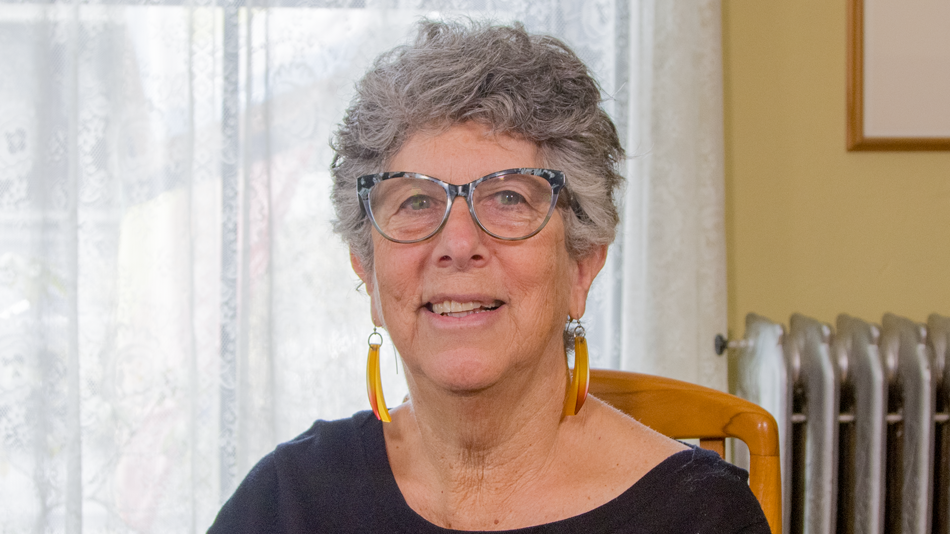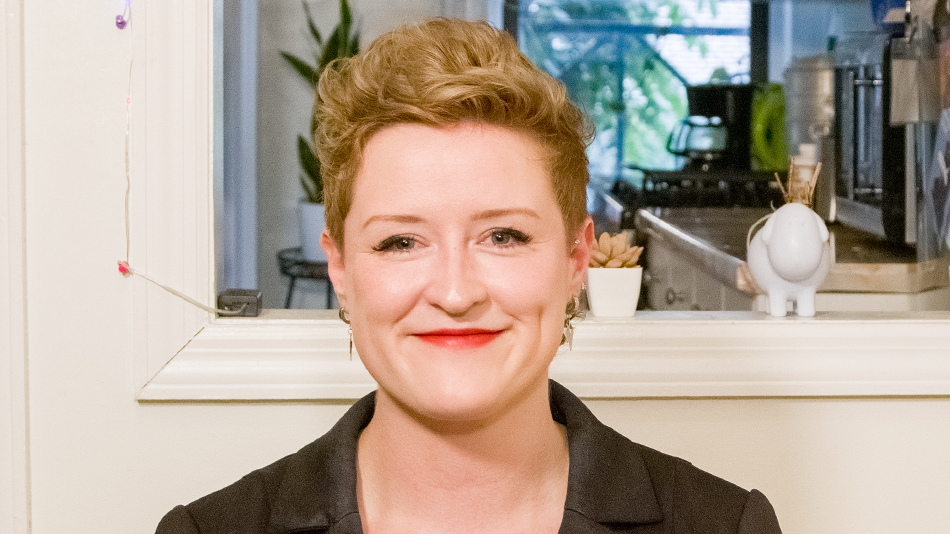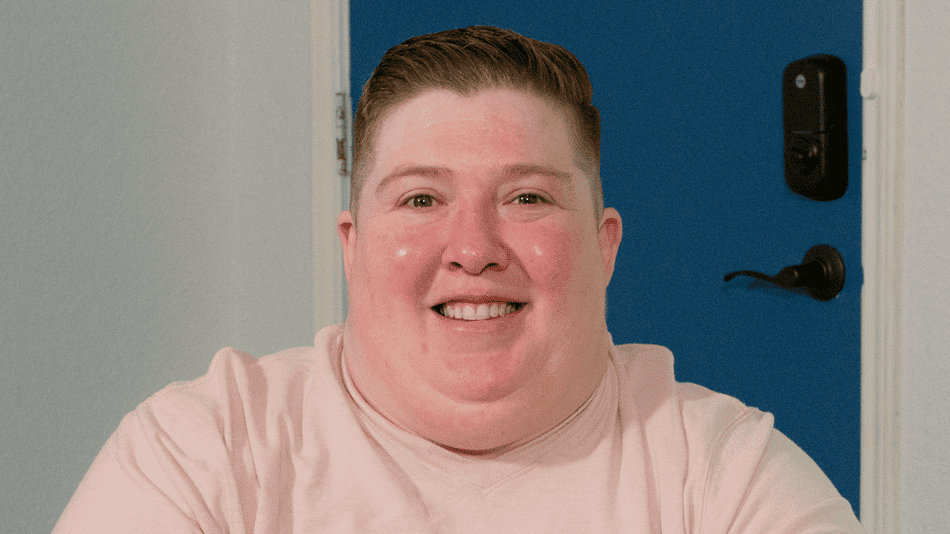My name is Rachel and I’m from Jacox, West Virginia. I grew up on a 100-acre sheep farm about an hour outside of a town of about 3,000 people. I believe it’s the most beautiful spot on the planet.
I left for college, I went to college in Western Massachusetts, and I came out pretty much immediately after getting away from home. But all my peers were either from cities or booking it to New York or San Francisco as soon as we graduated. I ended up moving to Austin, Texas. I sort of bought into this commonly held belief that rural places aren’t safe or welcoming for queer folks and I felt like I couldn’t move home even though I was achingly homesick for the mountains for pretty much 10 years.
I have a really vivid memory of being on the bus. I had a 4-hour a day bus ride and a lot of horrible conversations happened on the bus and one of those was a student behind me in the seat said, “We should put all the faggots on an island and drop a bomb on them.”
And I remember everyone on the bus laughing and I remember just feeling nauseous. I wasn’t out to myself as queer but I had this, “I have to leave, I have to go far away, I have to get out.” And I wanted to in high school, I wanted to leave. I tried everything I could to get out of here before I was a senior and I did, I left for my senior year. I finally did move home in 2011 and I was really worried about it, I definitely didn’t know what it was going to be like, I felt like I was going to be incredibly isolated, maybe not have community, would I ever be able to date here, what’s it like to be here full-time. And I’ve largely found that there are rural queer folks all over the place who are not only surviving but thriving either in the communities where they came from or into chosen communities they’ve moved to, and I think there are unique challenges to being queer in rural places but I also feel like there are really unique joys to it. And I think for some queer folks who grow up in rural places, they care just as much or more about, for example, the mountains where they were raised, or the plains or whatever landscape it was or whatever traditions and histories around farming or different things that are happening in rural places, that as they do about their queerness.
So for me, moving home I found a lot of that within a sort of central Appalachian youth network and found a lot of young people who are sort of fighting that urge of the “brain drain” that happens a lot in Appalachia that sort of just out migration of young people to try to find more opportunities. So I found a network of young people who are really committed to staying and committed to working on what we think needs to change in these mountains, a lot of whom are queer. so we’ve had a lot of conversations about what it’s like to be queer in the mountains, what it’s like coming back to a town where everybody knows you and trying to kind of bring your whole self into that space.
I think it’s really important for young queer folks who come from rural areas to know that staying is an option. Sometimes I think leaving is really important if you can, but some young people don’t have the choice to leave. What are they supposed to do if they live in a place that is incredibly isolating as a queer person, where they never see representations of people in media who are queer like them and super proud to be West Virginian like them? Where are they supposed to find examples of themselves? And I think that actually there are all sorts of rural queer folks who have amazing different types of experiences, whether positive and negative, incredibly diverse queer people all over the United States who are choosing to stay or don’t have the option to leave. And I think our stories really need to be told, I think our faces need to be seen, I think we need to be visible, I think we need to not be silent anymore, so that young people know it’s fine if they want to stay, if they’re queer and maybe want to go to a Pride March sometime, but really just want to take over the family farm.
I had a 16-year-old kid from Canada write me an email last week saying that she lives with both parents who are pastors, her grandmother who makes homophobic comments all the time, but that she loves where she lives, that she cares so much about this rural place where she’s from, and that reading these stories on the Country Queers website makes her feel like she can stay, that she can be queer and she can have the land that she loves so much. And I think more stories like this are really important for queer folks in rural places and also in cities. I think we need to change that idea that rural areas are unsafe because it’s not true.








Share